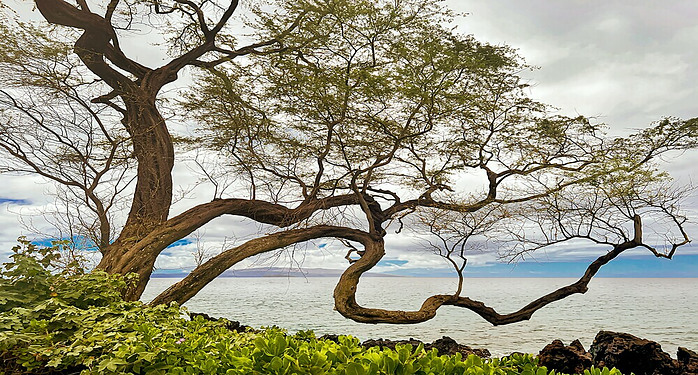Acacia wood is a type of wood that is prominently featured in the Bible. We could say that the importance of acacia wood in the bible is considerable. It is mentioned several times in the Old Testament, especially in the book of Exodus. The Tabernacle, the Ark of the Covenant, and many other pieces of furniture and worship equipment were built from wood.
According to the Bible, God commanded the Israelites to use acacia wood to construct the Tabernacle and its equipment. The wood was chosen for its strength, durability, and resistance to rot and insects. Additionally, it was used for staffs that carried the Ark of the Covenant and other sacred objects as they traveled through the desert.
Isaiah 41:19 talks about God’s promise to plant trees in the wilderness to revive His people. In the Bible, the use of acacia wood is not only practical but also has spiritual significance. It represents God’s provision, protection, and redemption of His people and their devotion and worship of Him. The Bible mentions acacia wood several times and is often associated with the Tabernacle, the Ark of the Covenant, and other essential items used in Jewish worship. Here are some critical mentions of acacia wood in the Bible:
Acacia Wood in the Bible
Acacia Wood in the Tabernacle
In the Book of Exodus, God instructs Moses to build a tabernacle in the desert as a place of worship for the Israelites. Acacia wood is often considered a critical material for constructing the Tabernacle and its furnishings. For example, in Exodus 25:10, God tells Moses to make the Ark of the Covenant out of acacia wood, and in Exodus 26:15, He instructs him to make the planks for the walls of the Tabernacle out of acacia wood.
Acacia Wood in the Ark of the Covenant
The Ark of the Covenant was a sacred chest containing the tablets of the Ten Commandments and other important items. According to Exodus 37, the Ark was made of acacia wood covered with gold and had rods of acacia wood for carrying it.
Acacia Wood on the Table of the Decked Loaves
Another essential part of the Tabernacle’s furnishings was the table of decked bread. It was made of acacia wood covered with gold and had rods of acacia wood to carry (Exodus 37:10-14).
Acacia Wood in the Altar of Incense
The altar of incense was used for burning incense as part of worship in the Tabernacle. It was made of acacia wood covered with gold and had horns made of acacia wood (Exodus 37:25-28).
Acacia Wood on the Altar of Burnt Offering
The altar of burnt offerings was used to offer animal sacrifices as part of worship at the Tabernacle. It was made of acacia wood covered with bronze and had rods of acacia wood to carry (Exodus 27:1-8).
Acacia Wood on the Poles of the Ark and Table
As we mentioned earlier, the Ark of the Covenant, the shewbread table, and other Tabernacle items had rods of acacia wood to carry them. These poles were covered with gold and were an important part of the construction of the Tabernacle (Exodus 25:13-15).
Acacia Wood in the Temple and Jerusalem
Acacia wood was also used in the construction of the Jerusalem Temple. According to 1 Kings 6:15-22, the walls of the temple were lined with cedar, and the floor was made of fir. However, the doors and doorways were made of acacia wood. Furthermore, in Isaiah 41:19, God promises to plant cedar, acacia, myrtle, and olive trees in the desert so that His people will have wood for construction.
In general, acacia wood played a significant role in the construction of the Tabernacle, the Ark of the Covenant, and other important items used in Jewish worship. Its density and strength made it an ideal material for these purposes, and the symbolism of redemption, understanding, pillars, and devotion added to its significance.
Acacia Wood in Isaiah
The Book of Isaiah mentions acacia wood as a valuable building material. The wood is known for its durability and resistance to rot and insects, making it an excellent choice for construction.
In Isaiah 41:19, we read: “I will plant in the desert cedar and acacia, myrtle and olive tree; I will plant in the desert together cypress, pine, and boxwood.” This verse shows that acacia wood was highly valued in Biblical times, as it was one of the trees God chose to plant in the desert.
In addition to construction, acacia wood was also used for other purposes. The gum of the acacia tree was used to make a kind of glue, and the bark was used to make leather. In addition, acacia wood, which burns slowly and produces a small amount of smoke, was used to light fires.
Although acacia wood was highly valued, it was not the only wood used in construction. Other woods mentioned in Isaiah include olive, fir, and grain. However, acacia wood is particularly known for its durability and strength.
Overall, the biblical use of acacia wood shows the importance of choosing strong and durable materials for construction. It also emphasizes the value of natural resources and the wisdom of using them.